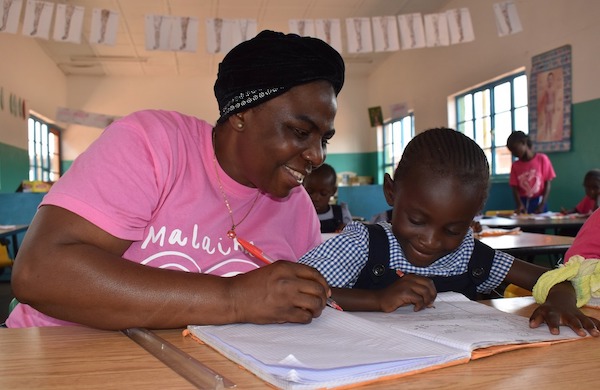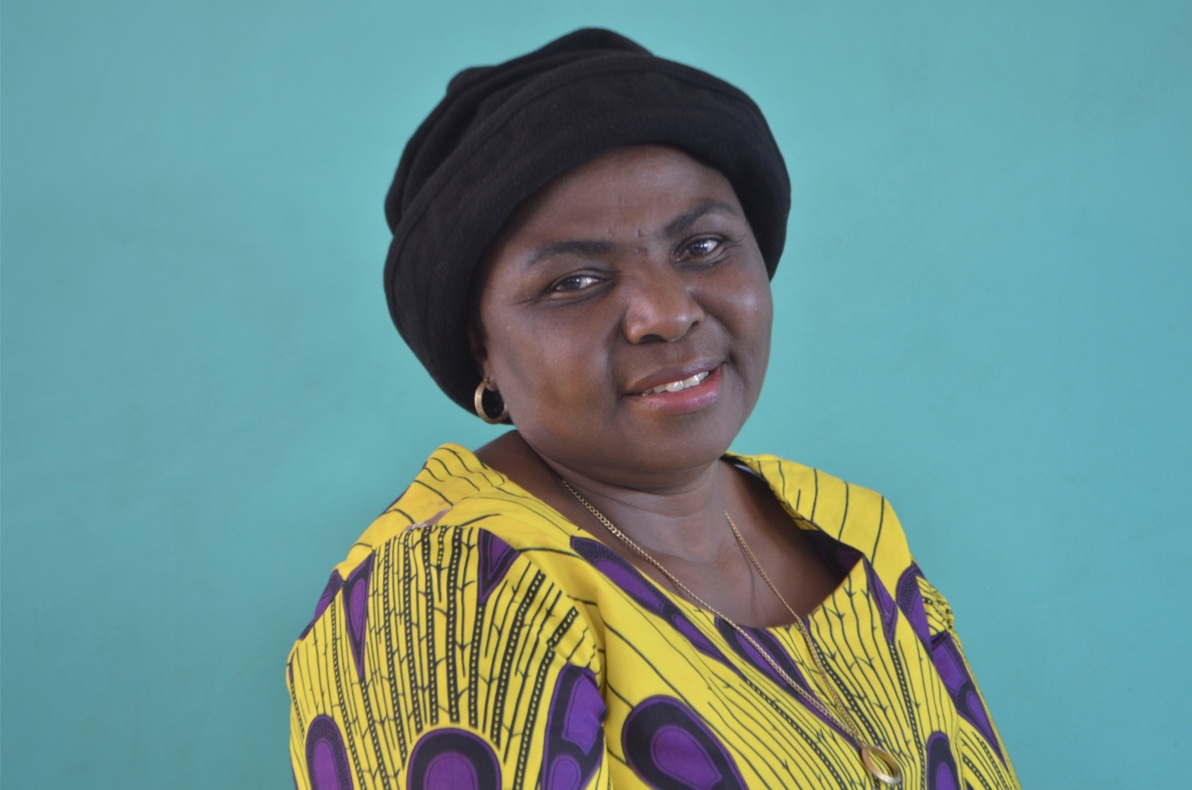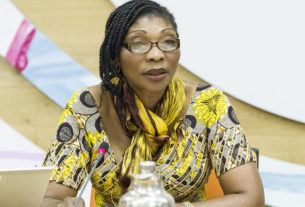Thérèse Mabaka Angelani, a teacher at the Malaika school in Lubumbashi, Democratic Republic of Congo, is one of 50 finalists for the Varkey Foundation’s Global Teacher Prize. The prize recognises the impact that the best teachers have on their pupils and the communities around them.
The 50 finalists, says the Varkey Foundation, come from all over the world and teach in remote towns and villages or in schools in disadvantaged areas. They advocate integration and children’s rights, integrate migrants into the classroom and develop their pupils’ abilities and self-confidence. “They are all champions of change and a source of inspiration for their pupils and the communities around them”, say the prize organisers.
A graduate in French and African languages, Thérèse Mabaka has been teaching at the Malaika nursery school since it opened 12 years ago. She is also deputy director of education and acts as a school counsellor, advising girls on issues relating to their sexual health, hygiene and education. Her role also extends to the wider community, as she supervises the mothers at the community centre and provides them with health education and general skills in hygiene, housekeeping, laundry and family planning. She passes on a wealth of knowledge, helping them to look after themselves and their families with skills such as soap-making, cutting and sewing, and food preparation.
Innovative teaching methods
For the Varkey Foundation, Thérèse Mabaka’s exceptional teaching practice is a winning combination of love, dedication and innovative teaching methods that have transformed the lives of her students and her community. She truly embodies the idea that teaching is not just a job, but a way of life. The results achieved by her students, the Foundation explains, are testament to the effectiveness of her teaching methods. “Although they face economic difficulties and come from disadvantaged backgrounds, its pupils excel academically, with a high success rate of 75% on average, while 97% of them are fluent in French and successful in various reading, writing, fashion, dance and sports competitions”.

The Malaika school, where Thérèse Mabaka teaches, has also won international recognition for its significant contributions to literacy, sustainability and educational work in the DRC. Her impact also extends to climate change and environmental awareness, with her school integrating climate change education into the curriculum and leading by example with sustainable practices such as renewable energy, regenerative agriculture and reforestation efforts.
A remarkable teaching career
Thérèse Mabaka, it is explained, embarked on a remarkable educational career, motivated, it is said, by her passion for education and love of her pupils. Born into a family of educators, her father being a teacher, she first followed a religious vocation as a nun. During her time in the convent, she discovered that her true vocation was to educate and inspire children.
Thérèse Mabaka believes that teaching is not just about imparting knowledge, but also about fostering the growth of her pupils as individuals. Wife, mother and grandmother, says Malaika, she is determined to see the girls at the school become leaders in their community, and is convinced that the community will be transformed by girls’ education. She is delighted to see the first class of Malaika pupils, who enrolled 12 years ago, receive their state diplomas and continue their studies.
Adapting her teaching methods
When she arrived in Kalebuka, Thérèse Mabaka was faced with the daunting task of teaching pupils who, for the most part, spoke only their local language, lacked basic hygiene skills and had little interest in education. She approached this challenge with empathy, adapting her teaching methods to meet her pupils where they were. Over time, she has seen remarkable improvements, not only academically, but also in terms of personal development. Just one example of the impact she has had on students is a young girl who wouldn’t listen, suffered from an inferiority complex, had little self-confidence and had a habit of running away a lot. But after her desperate parents entrusted her to Thérèse, her patience and encouragement, her advice and support over time transformed this young girl’s life into that of one of the most successful students.

Dedication outside the classroom
Thérèse Mabaka’s dedication goes beyond the classroom. She is actively involved in the community, offering literacy classes to parents, particularly mothers, to improve their standard of living. She addresses issues such as hygiene, health, entrepreneurship and family planning, thereby contributing to positive change within the community.
As a teacher,” continues the Varkey Foundation, “Thérèse Mabaka is convinced of the need to prepare her pupils to become global citizens, using technology to help them discover the world beyond their immediate environment using the integrated content of the iPad and television. Through programmes, international competitions and virtual interactions with educators around the world, including schools in Belgium and the UK, it broadens their horizons and encourages them to dream big.
Improving the teaching profession
Thérèse Mabaka is a dedicated teacher and a catalyst for improving the teaching profession. She does this by collaborating with educators around the world, sharing her innovative teaching methods and learning from others. Her commitment to continuous improvement benefits her students, her colleagues and the entire educational community.
Open to all teachers
The World Teacher Prize is open to practising teachers who teach compulsory school-age children or children between the ages of five and eighteen. Teachers who teach children over the age of 4 as part of a government-recognised early childhood education programme are also eligible, as are teachers who teach part-time and teachers who deliver online courses. Teachers must spend at least 10 hours a week teaching children face-to-face, and plan to remain in the teaching profession for the next 5 years. The award is open to teachers from all types of schools and, subject to local laws, from any country in the world.



